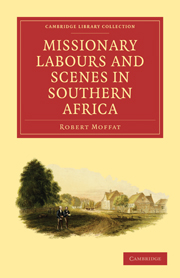Book contents
- Frontmatter
- PREFACE
- Contents
- CHAPTER I
- CHAPTER II
- CHAPTER III
- CHAPTER IV
- CHAPTER V
- CHAPTER VI
- CHAPTER VII
- CHAPTER VIII
- CHAPTER IX
- CHAPTER X
- CHAPTER XI
- CHAPTER XII
- CHAPTER XIII
- CHAPTER XIV
- CHAPTER XV
- CHAPTER XVI
- CHAPTER XVII
- CHAPTER XVIII
- CHAPTER XIX
- CHAPTER XX
- CHAPTER XXI
- CHAPTER XXII
- CHAPTER XXIII
- CHAPTER XXIV
- CHAPTER XXVI
- CHAPTER XXVII
- CHAPTER XXVIII
- CHAPTER XXIX
- CHAPTER XXX
- CHAPTER XXXI
- CHAPTER XXXII
- CHAPTER XXXIII
- CHAPTER XXXIV
- INDEX
CHAPTER XXX
Published online by Cambridge University Press: 29 August 2010
- Frontmatter
- PREFACE
- Contents
- CHAPTER I
- CHAPTER II
- CHAPTER III
- CHAPTER IV
- CHAPTER V
- CHAPTER VI
- CHAPTER VII
- CHAPTER VIII
- CHAPTER IX
- CHAPTER X
- CHAPTER XI
- CHAPTER XII
- CHAPTER XIII
- CHAPTER XIV
- CHAPTER XV
- CHAPTER XVI
- CHAPTER XVII
- CHAPTER XVIII
- CHAPTER XIX
- CHAPTER XX
- CHAPTER XXI
- CHAPTER XXII
- CHAPTER XXIII
- CHAPTER XXIV
- CHAPTER XXVI
- CHAPTER XXVII
- CHAPTER XXVIII
- CHAPTER XXIX
- CHAPTER XXX
- CHAPTER XXXI
- CHAPTER XXXII
- CHAPTER XXXIII
- CHAPTER XXXIV
- INDEX
Summary
In the latter end of the year 1829, two traders journeyed into the interior for the purpose of shooting elephants, and to barter. Hearing at the Bahurutsi that a tribe possessing much cattle lived at some distance eastward, they proceeded thither, and were received in a friendly manner by Moselekatse, the king of that division of Zoolus called Abaka Zoolus, or more generally Matabele. He, however, only allowed them to approach one of his cattle outposts on horseback. Prior to this visit this tribe had had some intercourse with the Bahurutsi, by whom they obtained partial information respecting white people, and particularly those on the Kuruman station, with whom they were best acquainted. During the time of his residence on the Lekua, and other sources of the Orange River, his people had been attacked by the Bergenaars, but as these were only Griquas and Corannas, he was in comparative ignorance of the characters and dispositions of the whites. When these traders returned, Moselekatse sent with them two of his lintuna, or chief men, for the purpose of obtaining a more particular knowledge of his white neighbours; charging them particularly to make themselves acquainted with the manners and instructions of the Kuruman teachers. On their arrival they were astonished beyond measure with every thing they saw, and as they, according to the custom of their nation, were in a state of nudity, their appearance very much shocked the comparatively delicate feelings of the Bechuanas, barbarians as they were.
- Type
- Chapter
- Information
- Missionary Labours and Scenes in Southern Africa , pp. 510 - 537Publisher: Cambridge University PressPrint publication year: 2010First published in: 1842

